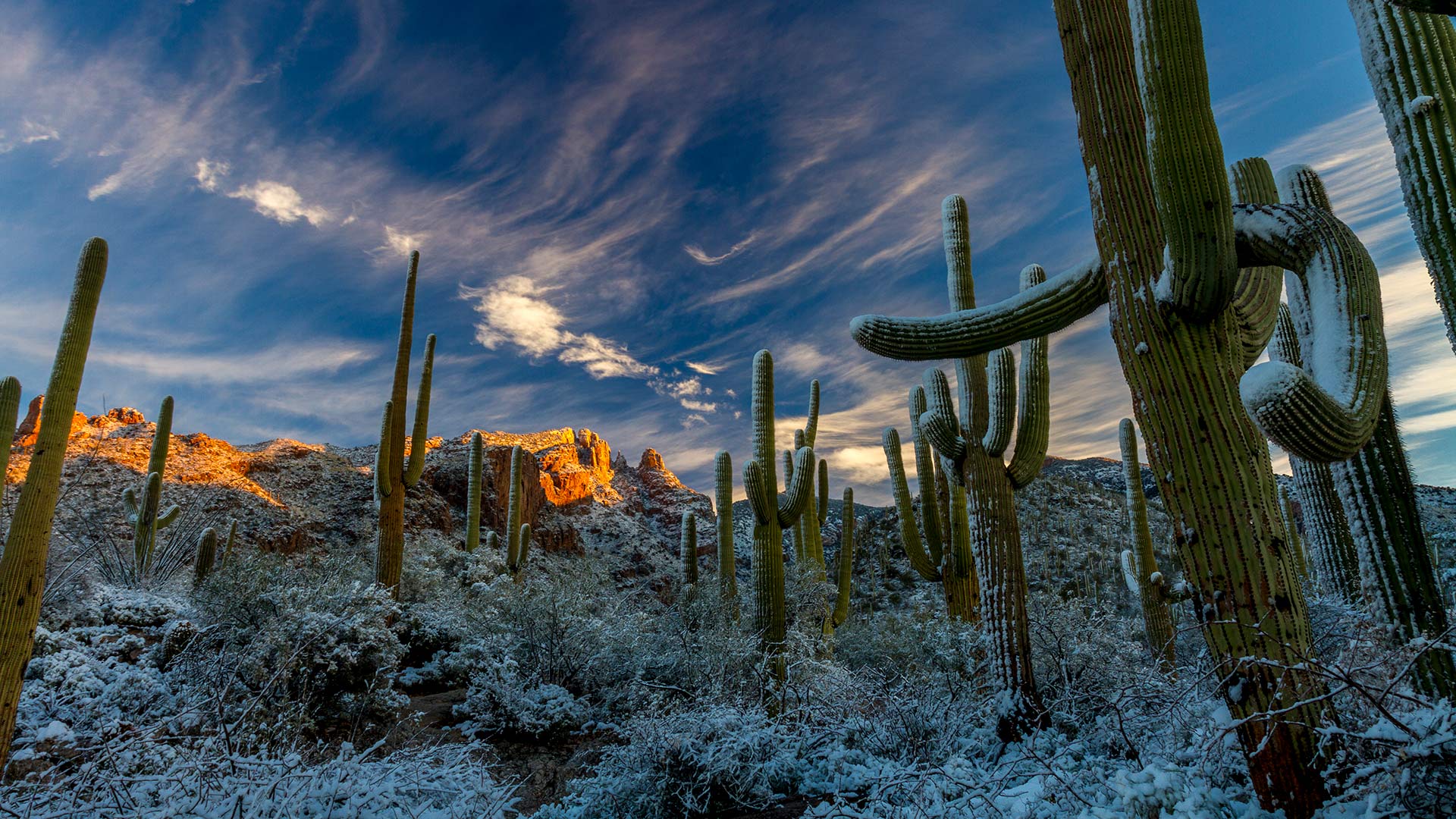 Rare desert winter snow on saguaro cactus in the Catalina Mountains.
Rare desert winter snow on saguaro cactus in the Catalina Mountains.
The Buzz for December 23, 2022

The winter solstice is the shortest day and longest night of the year, when the sun reaches its southernmost point in the sky. This day marks the beginning of winter in the Northern Hemisphere and a time of celebration for many cultures.
On this week’s show, we spend time talking about the different ways people celebrate and observe the winter solstice.
Andrea McComb Sanchez is an assistant professor of religious studies at the University of Arizona who specializes in Native American and Southwestern religious traditions. We talked with her about religious ceremonies around the winter solstice for Pueblo people, and what kinds of things are celebrated during this time of year.
Danielle Adams is a cultural astronomer, someone who studies the astronomical systems of different cultures, often ancient ones. She recently received her Ph.D. from the University of Arizona. We talked with Adams about the connection between celestial objects, like the sun, moon and stars, and celebrations by different peoples, as well as her project Two Deserts, One Sky, which aims to help bridge the gap in understanding between Arabia and the U.S. desert Southwest through the commonalities in the night sky in both places.
While most are familiar with winter holidays of major religions, there are also other, lesser-known celebrations this time of year. Lady Carol Garr is a third-degree eclectic Wiccan priestess. What does that mean exactly? Garr talked to us about paganism and its roots, and what kind of celebrations are tied to this time of year.


By submitting your comments, you hereby give AZPM the right to post your comments and potentially use them in any other form of media operated by this institution.